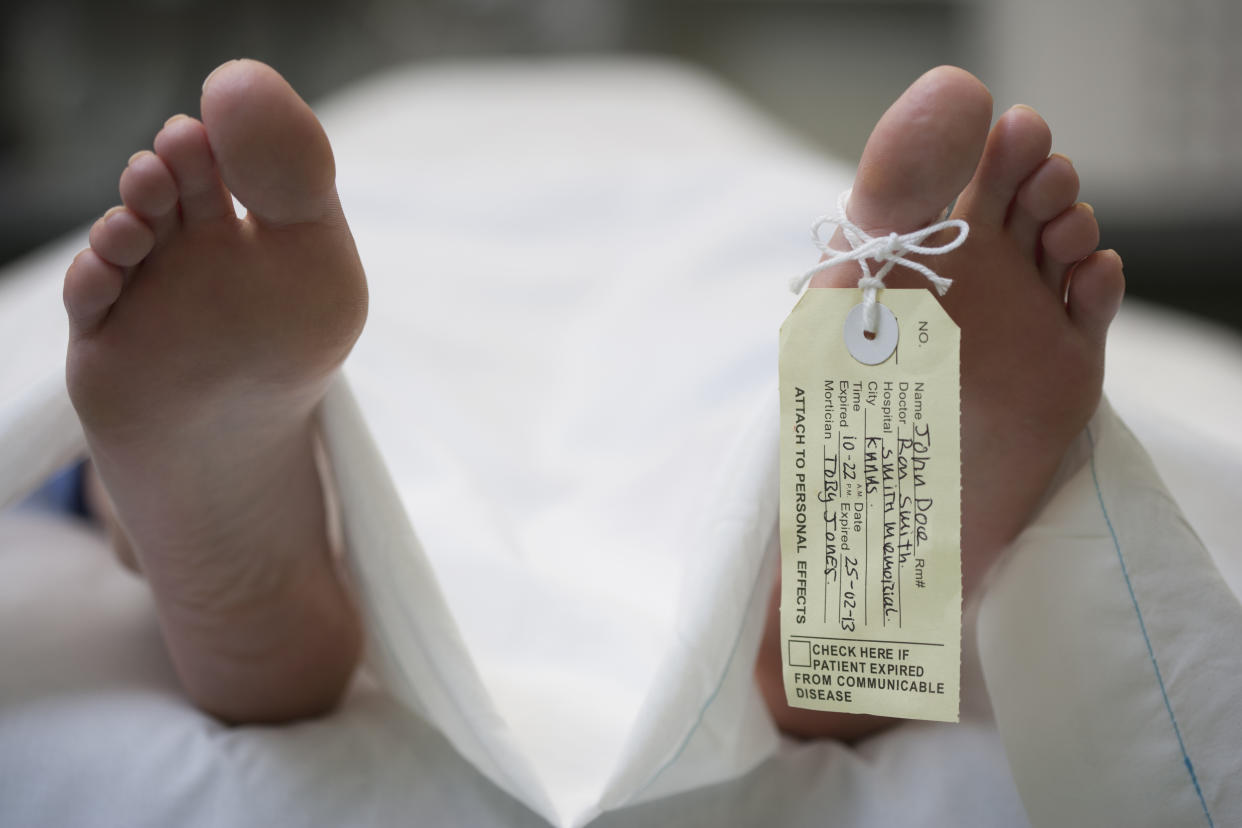Canada's first body farm already flooded with donor requests

News of Canada’s first body farm, set to open this spring in Becancour, Que., has inspired a flood of volunteers to donate their eventual remains. The response has been so overwhelming that Shari Forbes, the director of the project, is only accepting those who live within the province of Quebec, until more space is secured in other provinces.
The official title of the body farm is the Secure Site for Research in Thanatology, an outdoor research facility near Trois-Rivieres that’s used to study the decomposition of the human body. The half-acre, which is currently under construction, is reserved to research what happens to human remains when exposed to a range of elements. That means some of the bodies will be left in vehicles, buried in shallow graves or left uncovered.
“Our work is intended to assist police involved in death investigations,” Forbes tells Yahoo Canada. “Some of the research is about advancing our ability to search and recover victims, and to do that much more rapidly.”
While police dogs are often used to search for remains, the research facility will explore other tactics like drones and aerial technology. The facilities will also focus on new ways to identify the body.
“We typically rely on fingerprints, DNA and teeth but often after many years, that’s not available to identify the victim,” she says.
Another important area of research that the facility is working on is time since death, the estimated time that the victim has been deceased. Currently, researchers use the life cycle of insects to study time since death, yet that assumes the insects are present year-round, which isn’t the case in a cold-climate province like Quebec.
“For six months of the year we don’t even have a method for estimating time since death,” she says. “We need to develop new research to do that as well.”
The project will receive their first donated bodies next year, in the springtime, when all the snow has melted. Forbes says they’ve received overwhelming response to their request for donors, from a wide range of demographics.
“We’ve had donors as young as 20 who’ve signed up, who obviously we won’t be seeing any time soon,” she says. “We also have others who are thinking of donation because they have a terminal illness or other reasons that would suggest they don’t have a lot of time left.”
Once a donated body arrives at the research facilities, it will be visited once a day, regardless of the season. The body may remain clothed, or exposed, depending on the scenario researchers are recreating.
Some of the decomposition process is quite swift and researchers need to collect as much data as they can. Once a donor has been there for some time, researchers will visit less frequently, but the body will remain on site for many years.
“That mimics the kinds of scenarios we’re typically involved in, where we’re looking for people who’ve been missing a year, if not longer,” says Forbes.
The highly secured research site will only be open to authorized visitors. That includes researchers, or police officers for training purposes. An example would be the police’s dog unit, which would need to get familiar with the smell of human remains.
“Typically we do restrict access because our priority is to maintain the privacy of our donors,” says Forbes.
At the moment, the facility is only accepting donors who live within Quebec, due to provincial requirements. That could change if they open another body farm in Ontario, which the team is currently working on, as well as somewhere on the west coast.
Those in Quebec interested in donating their remains, can contact Forbes at Shari.Forbes@uqtr.ca.

 Yahoo Movies
Yahoo Movies 
